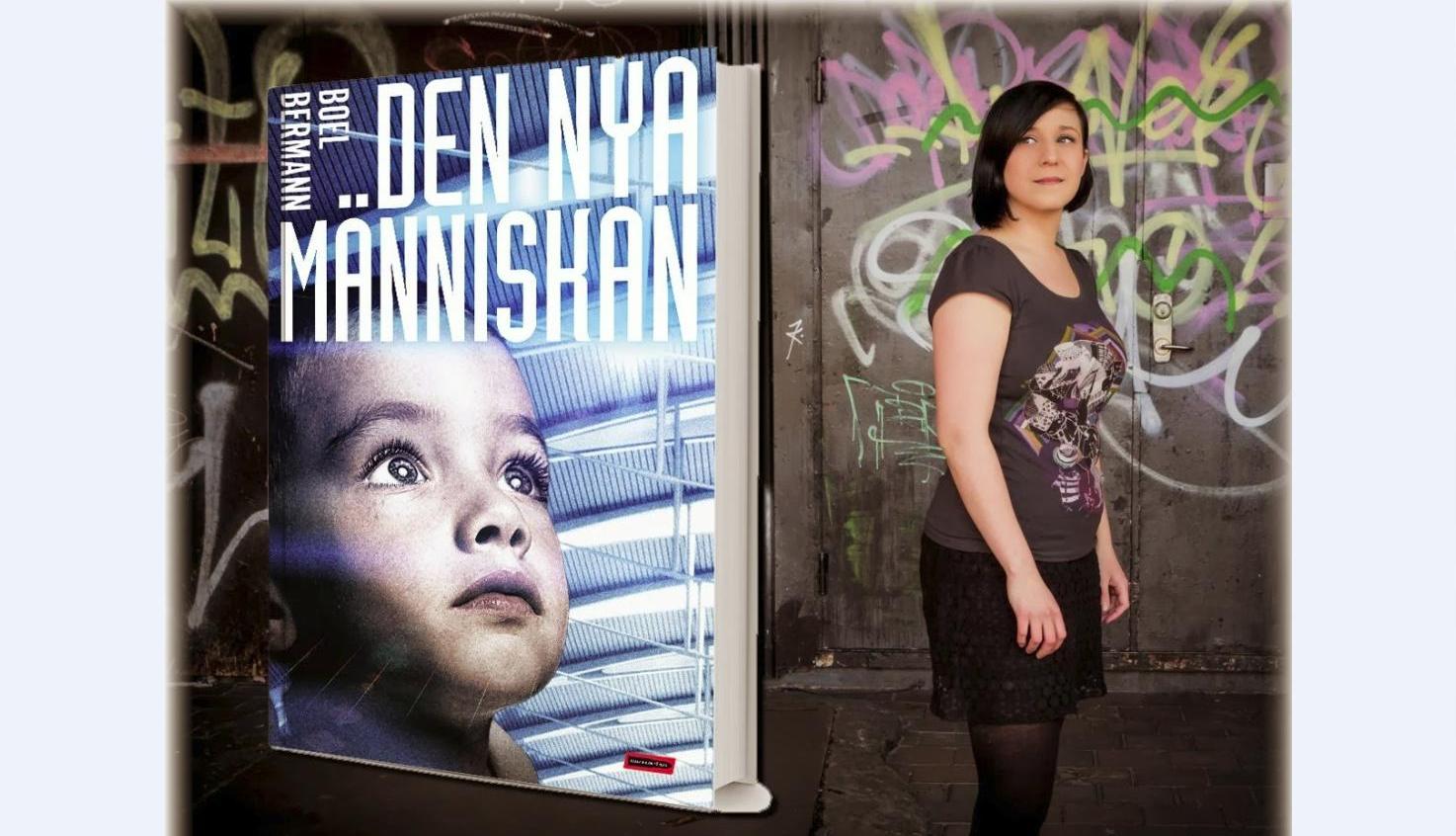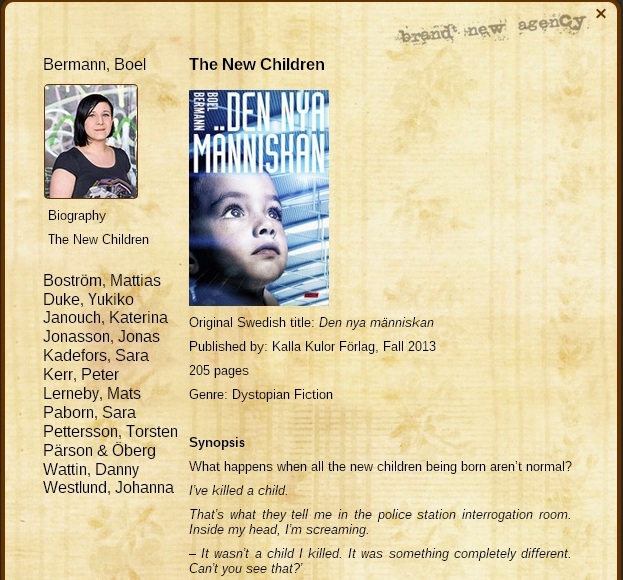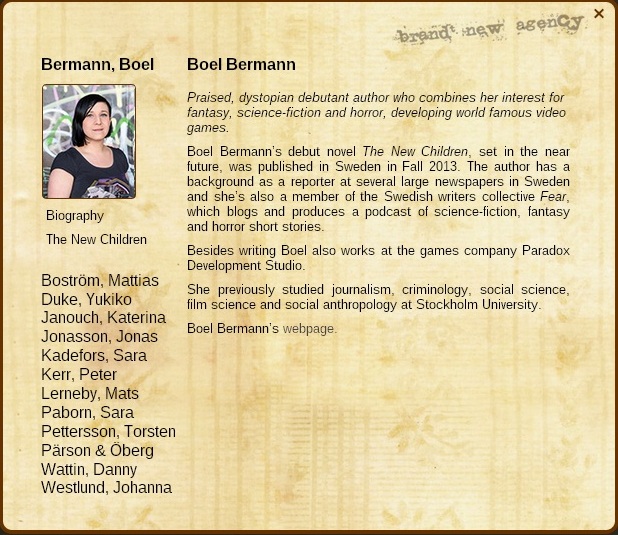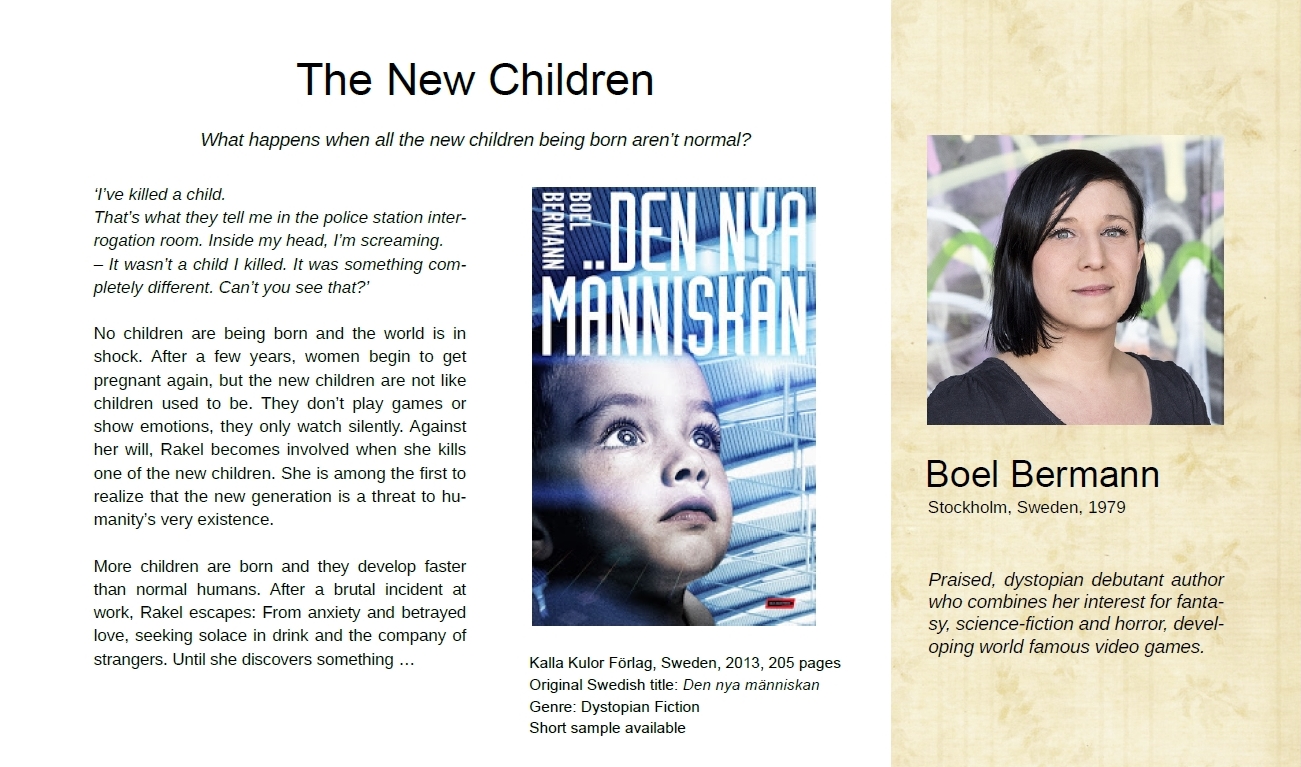”Boel Bermann is a woman of many talents — she’s a journalist, works at a game company, is part of a writing collective with their own podcast… and after all that, she’s also the author of an intriguing dystopian novel, The New Children. In the novel, she explores the thing we fear the most — what if something was wrong with our kids? Our sisters and brothers? It’s a scary thought, making kids the ones to be feared.
Hopefully there’s chance we’ll see Den nya människan (Swedish title) in English some day. But until then, read on to discover why Boel enjoys dystopias, what she hopes to explore in her writing and how different her writing process is for her work at the game company when compared to writing her novels.”
Read the interview at pop.edit.lit:
http://editingeverything.com/author-interviews/boel-bermann-interview/






Kommentarer